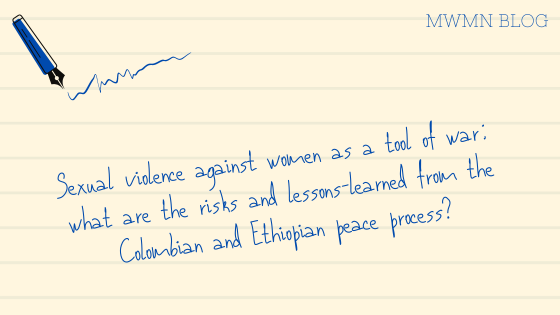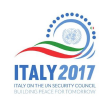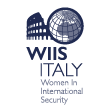Sexual violence in peace processes, lessons learned from the Colombia negotiations
Sexual violence is one of the types of gender-based violence in armed conflicts with the most devastating consequences. Women are victims of sexual violence in all kinds of conflicts and are victimised by all types of actors. Since the 1990s, this historically invisible phenomenon has received more attention from political and social actors, the media, public opinion and scholars. However, sexual violence has received scant attention in most peace negotiations. In fact, it was not until 2016, with the signing of the agreement between the Government of Colombia and the FARC, that a peace agreement was signed that included comprehensively for the first time the impact that this violence had had on an armed conflict and its subsequent legal treatment.
This agreement has been considered one of the most successful and innovative in terms of gender equality, given the active participation of women at different levels of the process and the inclusion of a transversal gender approach in the text of the agreement. In addition, the agreement included sexual violence, with recognition of the victims and excluding amnesty for those responsible for its perpetration. In this process, a series of good practices were given that can serve as learning for other processes. In the first place, women’s and victims’ organizations, facilitators of the process and negotiating parties promoted the inclusion of sexual violence to different degrees and levels. The action of all these actors took place in a favourable context, since the negotiations incorporated the gender approach as a methodological tool that allowed specific aspects of the armed conflict, strongly crossed by gender inequalities such as sexual violence, to form part of the negotiating agenda.
In addition, the existence of the gender subcommittee, a space specifically designed for women’s participation, made it possible to raise the profile of topics related to gender violence. It should also be noted that both the national and international normative framework on sexual violence, as well as the political framework generated by the existence of the agenda on women, peace and security, had a salient influence on the peace process. During the negotiations, there were specific spaces for discussion on sexual violence and there was participation of activists and experts from civil society. The presence of the Special Representative of the Secretary General on sexual violence in conflicts reinforced the work on sexual violence by the negotiating delegations. Thus, achieving peace agreements that are sensitive to gender inequalities, and that recognise the rights of women and victims, requires processes that allow for and are driven by multiple actors, visions and practices.
No Lasting Peace without Justice: Conflict-related sexual violence and other war crimes in Ethiopia
The relationship between armed conflict and rape is as old as warfare. In the aftermath of United Nations Security Council resolution 1325, statements associating conflict-related sexual violence as an inevitable occurrence during wartime are unacceptable. In the case of the manifold conflicts in Ethiopia, all parties have systematically used rape as a weapon of war, not only in the conflict in Northern Tigray but in other regions as well. So why is the use of rape during wartime widely spread and even tacitly accepted as inevitable? This is not a matter of external interference in the domestic affairs of a sovereign country. The use of rape during war is indeed a war crime.
Part of the answer lies in previous experiences of armed conflict where impunity prevailed, and the perpetrators were not rendered accountable for their wartime crimes. The war erupted in November 2020, opposing the then–representatives of the Regional state of Tigray (TPLF) and the Ethiopian National Defence Force’s (ENDF) Northern Command. After a two-year period of fighting and a total blockade of humanitarian aid in Tigray, the parties agreed in November 2022 on a peace deal led by the African Union. In the peace negotiations between the representatives of the government of Ethiopia and the TPLF, this type of war crime was not mentioned and neither was a Gender Adviser nominated. This last would have had a key role to play in assisting the parties in the transition to peace and in the reparations due to the victims of conflict-related sexual violence.
The peace deal was challenged by those armed groups that were parties to the conflict but were excluded from the peace talks.
At the onset of the conflict, the expansion of the theatre of operations to states within Ethiopia having contiguous borders with Tigray – namely the Amhara Regional and the Afar Regional states – came as a surprise. Even more surprising was the involvement of the armed forces of an external state. Indeed, despite the Ethiopian government’s initial denial of the presence of the Eritrean Defence Force (EDF) within Ethiopia’s sovereign territory, evidence emerging from abuses of human rights against Eritrean refugees within Ethiopia and other mass atrocities perpetrated by the EDF compromised the government’s claim that it was fighting a just war against a rebel group.
The tales of survivors of conflict-related sexual violence during this conflict confirm that there are no innocents. More worrisome, the fragile peace hangs in jeopardy until mechanisms for transitional justice are put in place and the process of marginalisation, stigmatisation and silencing of the victims/survivors of sexual violence is brought to a halt. Indeed, without justice there cannot be long–lasting peace. The victims’ right to justice and access to all the means and resources that can help them rebuild their life is at stake. The most important place to start is to recognise the victims/survivors’ agency by creating space to listen to their stories, investigate the truth and create conditions for reconciliation.




